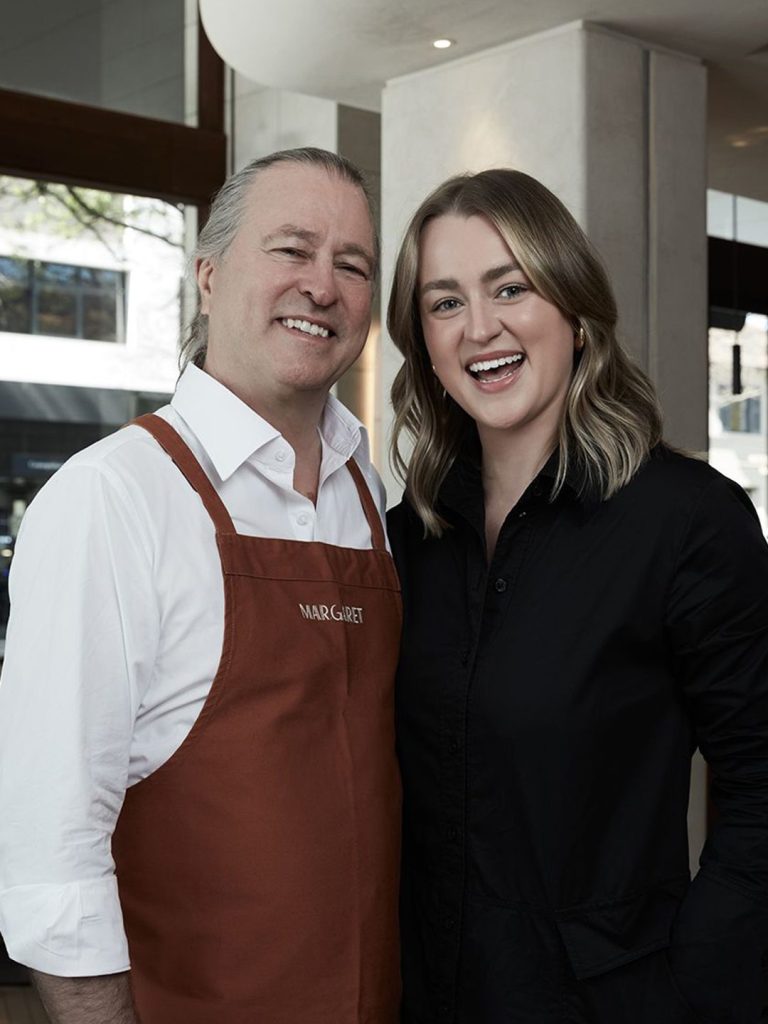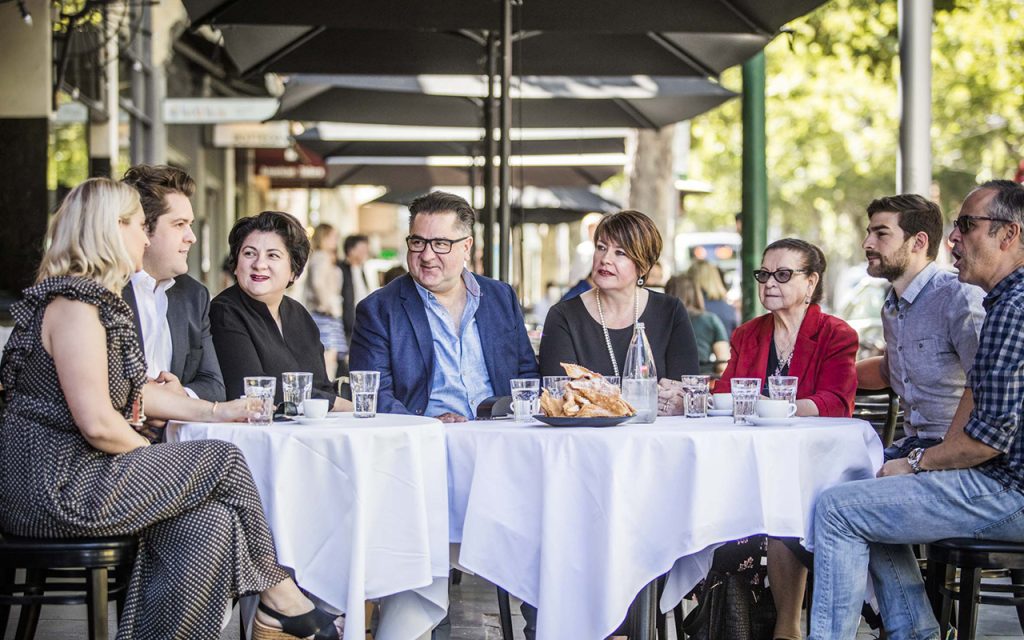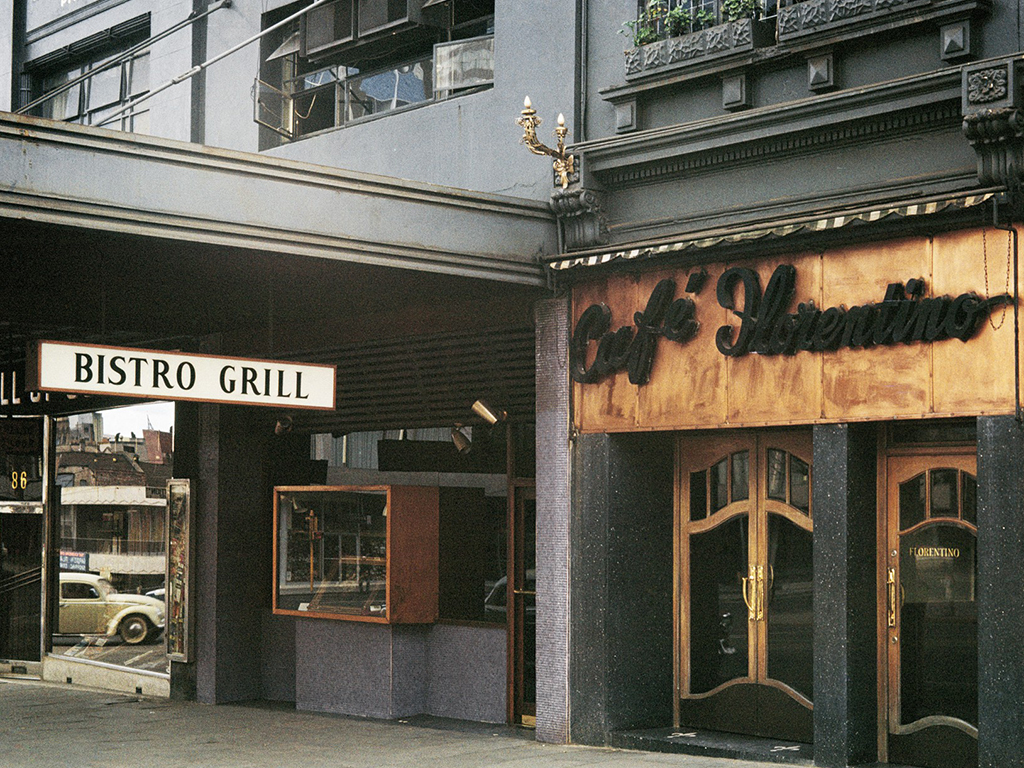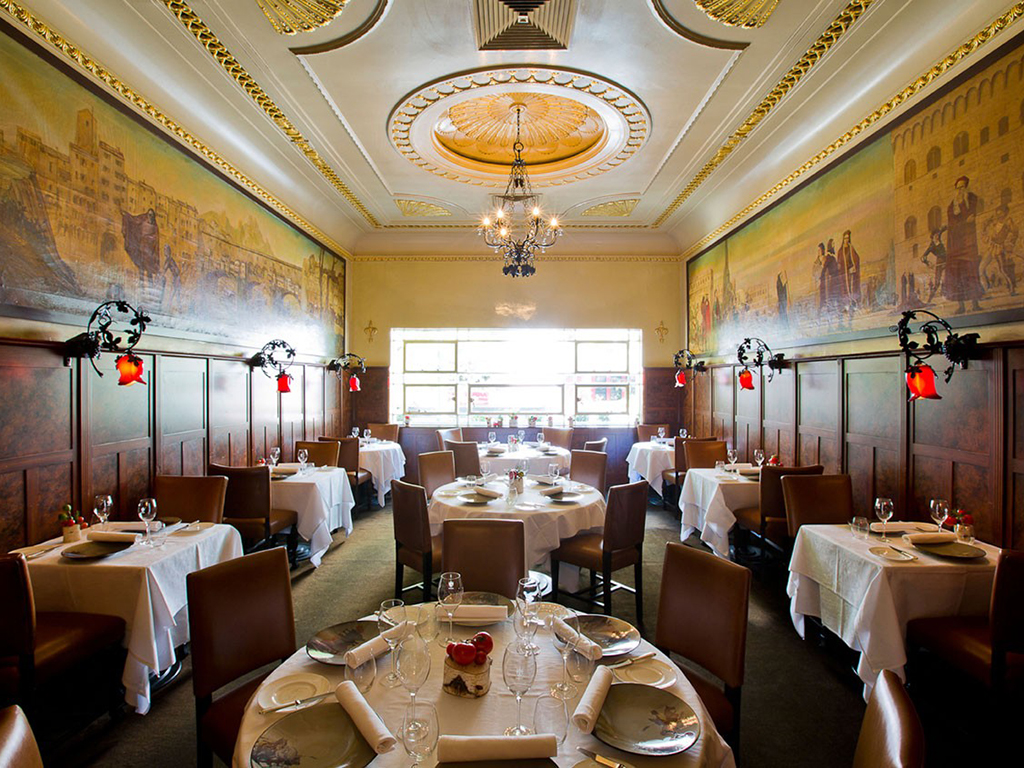By Leanne Clancey
Two of Australia’s most celebrated restaurant families reveal how inherited values enable them to bring heart and soul to the table year after year.
For Neil Perry OAM, the journey to becoming a chef didn’t start with an apprenticeship. It didn’t even start in the kitchen; in truth, it began much earlier. “I had no idea at the time, but growing up, I was being steeped in something very special, thanks to my parents. It was happening throughout my entire life, without me even realising it.”
Raised in inner-west Sydney by his parents, the late Lesley (Les) and Margaret Perry, the veteran chef says it was time spent with his father in his youth that perhaps proved most seminal. A butcher who supplied many Sydney restaurants during the 1970s and 80s, forming close relationships with chefs and restaurateurs from a range of backgrounds, Les exposed his son to diverse food cultures, providing him with the nuanced understanding of seasonality and quality in fresh produce that have been hallmarks of his career as a chef.
Through the exercise of tagging along on his dad’s delivery jobs, overhearing detailed conversations between chef and supplier, and sitting down to eat in the Chinatown restaurants that his dad supplied, Perry unwittingly gained an education that would later inform his trademark East-West fusion approach and foreground his role as one of the country’s most innovative and influential chefs.
“I didn’t think about it too much until I was writing my first cookbook, Rockpool,” Perry reflects. “Back in 1994, when I was doing the manuscript, I started thinking about what had drawn me to restaurants and cooking. It was at this moment that it really dawned on me that [my parents] were 100 per cent the reason that I was doing what I was doing—and approaching things the way that I was.”
In 2021, Perry translated this appreciation into a significant gesture of acknowledgement by naming his newest restaurant— Margaret, in Sydney’s Double Bay—after his late mother, who passed away in 2015. “At this restaurant, and the ones that came before it, the spirit of hospitality my parents engendered in me is really what runs things,” Perry shares. “From Mum, it’s that great sense of warmth, welcoming and family; and from Dad, just the sheer understanding of seasonality and great produce.”

Running front of house operations at Margaret is the family’s next generation— Perry’s daughter Josephine. She has been in the industry since she left school and, like Perry, shadowed her dad on the job from a young age. “I was on the phone at Rockpool taking reservations at eight years old,” she laughs. “I’ve just always loved the atmosphere of restaurants, and growing up at Rockpool really shaped me.
For Perry, who exited his role as culinary director and ambassador of the Rockpool Dining Group in 2020, returning to basics with a family-run business has brought new meaning to his work. “This is the first time I’ve been in business where the family owns the whole business—no external partners,” Perry explains.
“I really admire what Josephine does. She was so close with my mother, and she is a real pillar of what this restaurant stands for.”
Indeed, the family involvement does not stop there. Perry’s wife Samantha is closely involved in the business, while youngest daughters Macy and Indi (aged 19 and 17 respectively) stay busy helping out on weekends polishing cutlery, along with some of their friends, all locals from the area. “We have this tribe of kids doing shifts every week,” Perry says, enthusiastically. “We’re training the next generation.” The spirit of his mum’s warmth and inclusiveness clearly lives on in the work culture at Margaret, a sentiment that is not lost on the chef. “It’s that same philosophy of care, which is exactly what we wanted this business to be about.”
Likewise, the menu at Margaret reads like a rollcall of old friends, with ‘Luke’s kingfish’ sitting alongside ‘Ben’s coral trout’ and ‘Heidi’s bigeye tuna’—a testament to the genuine personal connections Perry has made with suppliers and the reverence and respect he holds for their role in the broader ecosystem of his business’ success. “It was at Barrenjoey House in 1983 that I first started writing the name of some suppliers on the menu, and I followed that through at Rockpool and later businesses,” Perry says. “It’s always been important to me. At Margaret, we list our suppliers by their first name because they truly are friends and colleagues and family.” He continues: “I’m [less interested in the price] of a product than I am in understanding how it has been treated. I taste it, I see the difference, so I want to make sure that I can support the supplier or farmer or fisherman to make a living out of looking after my product,” he explains. Forty years after he first began publicly citing suppliers on his menus—a practice largely unheard of at the time—the gesture is now much more prevalent in the industry, a shift Perry says he is thrilled to see.
“Hopefully I’ve set a benchmark there in terms of how other restaurateurs relate to their suppliers and producers.”

At fine dining institution Grossi Florentino, which has sat nestled in the leafy top end of Melbourne’s Bourke Street for close to 100 years, the notion of legacy looms large—as much for the family now running the near-century old business as for the history-filled walls of the building itself.
Established in 1918 as a wine bar by Samuel Wynn (founder of Wynn’s wines) and later trading as Cafe Florentino from 1928, Florentino is cited as Melbourne’s oldest restaurant. Melbourne chef Guy Grossi took the helm of the three-tiered business (which comprises the upstairs restaurant, and the less formal Grill and Cellar Bar downstairs) in 1999, bringing with him the cultural pride and passion for good food passed down from his father Pietro, who arrived in Australia from Italy in the 1950s.
Back in 1960, Pietro Grossi—then a newly arrived immigrant who worked as a cook in Melbourne’s CBD—had one of his first drinks at Florentino’s Cellar Bar. It was a rare sanctuary of European culture for a man finding his feet in a foreign land. Years later, as an apprentice chef in his teens, Guy visited Florentino for the first time, and recalls being captivated by the same old-world atmosphere that his father so appreciated.
Fast-forward a few decades and the iconic venue has been in the family for almost 25 years and become the flagship of a broader stable of hospitality businesses under the Grossi umbrella. Balancing the expectations of a long-established and deeply loyal customer base with his own ambitions as a chef, Guy steadily cemented a reputation as a pioneer of rigorously seasonal regional Italian cuisine in the Florentino kitchen, at a time when such concepts were largely uncultivated in Australia.

Today, the Grossi empire is a deeply family affair, with Guy’s adult children Carlo and Loredana running front of house and marketing respectively; his sister Elizabeth the business’ co-owner and director; Liz’s husband, Chris Rodriguez, executive chef of the Grossi Florentino kitchen; and Guy’s wife Melissa managing finances. The enduring influence of Guy and Liz’s late parents, Pietro and Marisa Grossi, still guides the family in both the food that is served and the warmth with which guests are treated, the latter being a legacy of Marisa’s own legendary spirit of hospitality.
“Discipline was one of the cornerstones of [Pietro’s] whole life approach,” Carlo says. “He was a very regimented man with a strong work ethic. So much of what we do is based around the lessons that my grandmother and grandfather taught the family.” He says Marisa played an integral role in the life of the business until her death in late 2022. “Right up until then, she was still pottering around the place. She would come in and have lunch with the girls. She’d hang out with Liz and interact with staff and, you know, give her opinion. She loved giving her opinion,” he laughs.
Looking back, Carlo recounts impressions of his first visit to the restaurant, aged 12, when his father had just taken over. “I remember coming here and thinking it was quite lovely and special,” he recalls. After that, it was a place where school holidays were spent helping out in the kitchen. “One of my earliest memories is being in the upstairs kitchen with Dad, blanching spinach and throwing it in iced water.”
As time went on, the restaurant became an anchor for the family. “In the early years, I don’t think there was a minute of service where either Liz, Guy or Chris weren’t here. And the rest of the family just gravitated in,” Carlo says. “It became our family hub. We’d be here for breakfast, lunch, and dinner.

We lived and breathed the place, we still very much do.” And despite the fact that the family’s empire has expanded to comprise multiple venues in various locations, the original has remained ground zero. “Even with our other businesses, we’ve got a place that is home. Whenever people ask me where I spend most of my time, it’s here.”
It’s natural to assume that with Guy having followed in his father’s footsteps, his son might have felt a sense of duty to continue the tradition, but for Carlo, entering the family business was more about passion than pressure.
“Growing up, Dad always told my sister and I that it was totally our choice what we did with ourselves,” Carlo explains. “At one stage, I was looking at different career paths, but once you get the bug and start working in the business and experience the act of hospitality it’s hard to stop. Then if you move away from it, it’s something you really miss”. Carlo says that while he initially spent more time in the kitchen, he was eventually lured by the restaurant floor. “I really just enjoyed that whole human element of the front. Making other people feel nice makes you feel really good. You get a buzz off it.”
As Florentino approaches its 100th year and the Grossi family its 25th year as custodians of the site, what might the future hold? “When you go to Italy, it’s not unusual to meet fourth generation restaurateurs whose family has been in the same place since for over 100 years. They really wear that heritage like a badge of honour— it’s an incredible thing to see,” Carlo says. “I hope we’re still here in 20 or 30 years’ time, still producing something special, still contributing to the city’s magic, and continuing to help people make the kind of beautiful memories they’ve been making here over so many years.”
